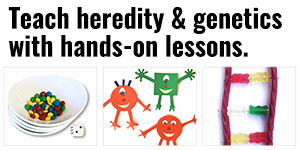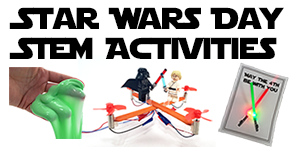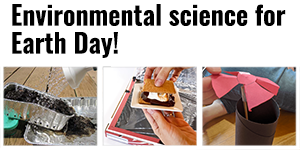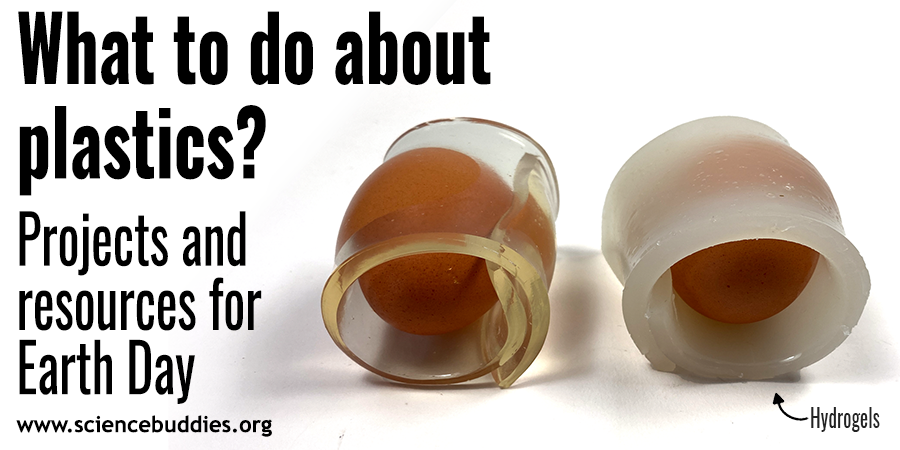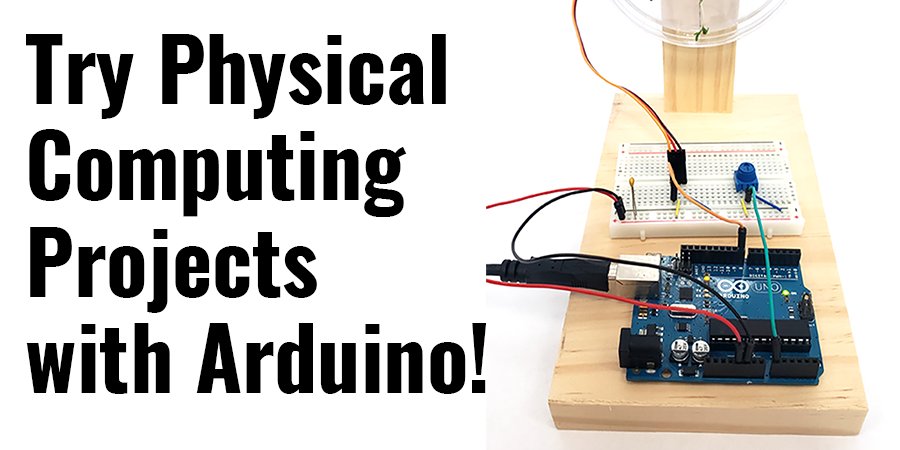Get Your Spud On with Potato Science
Potatoes make a great side dish, but they also make great subjects for hands-on science! Food chemistry, plant biology, and even basic electronics are all on the menu when you experiment with potatoes.
What is your favorite food on the Thanksgiving table? Turkey with cool cranberry sauce? Pumpkin pie with a dollop of whipped cream? For me, it is creamy, smooth mashed potatoes, piping hot and dripping with extra butter!
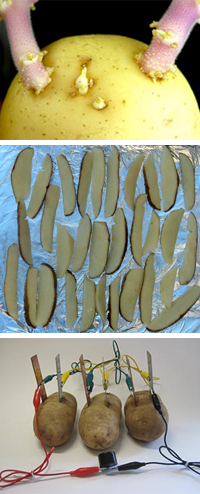
A South American Treasure
South American cultures had been eating potatoes for thousands of years before Spanish explorers brought them to Europe in the late 1500s. Despite their high nutritional value, it took about 200 years for potatoes to begin appearing regularly on European dinner tables. Until then, they were mostly used to feed animals. Now, however, potatoes are a staple in cultures all over the world, baked, boiled, steamed, mashed, and especially fried.
What Can You Learn from a Potato?
Some people say that fish is brain food. Try one of these Science Buddies Project Ideas, and you may decide that potatoes are brain food too!
- How to Turn a Potato Into a Battery: Our bodies use food for energy, but is it possible to power a light bulb with a potato? Yes! This fun Project Idea leads young scientists through the basics of batteries and circuits. A convenient science kit is available!
- Sprouting Sweet Potatoes Slips: Why does a potato have eyes? All the better to grow with! When placed in a dark location, potatoes can grow new stems from their eyes and eventually produce new potatoes. Do all of the eyes grow new stems? Investigate whether there's a limit to the number of sprouts that can grow from a single potato.
- How Greasy Are Your Potato Chips?: Traditional potato chips are fried in oil to give them a nice crunch. Newer recipes call for different cooking methods to make them more healthful. With a rolling pin and graph paper, see for yourself how much fat different varieties of potato chips contain.
- Smashing for Mash: The Science of Making Memorable Mashed Potatoes!: Be the mashed potato hero in your home! In this hands-on experiment, you'll try a variety of cooking and mashing methods to discover how to create the most delicious potatoes for your dinner table.
- Hey, Do You C My Potatoes? Determining Vitamin C Amounts in Cooked Potatoes: "Eat your veggies!" Grown-ups know that fruits and vegetables provide us with essential vitamins, but do cooking methods change the amount of vitamins that end up on our plates? Discover the best way to get the most vitamin C from your potatoes.
For additional potato science projects, see Potato Science Collection.
Plan Ahead for the Holidays
Thanksgiving and winter breaks are right around the corner. Skip the screen time and try some hands-on scientific exploration instead!
Categories:
You Might Also Enjoy These Related Posts:
- 15 STEM Gifts & Science Kits You'll Feel Good About Giving
- 13 Boat Science and Submarine Science Projects and Experiments
- July 4th STEM! Summer Science Picks for Independence Day!
- 12 Science Kits for Summer Science Experiments and Discovery
- 15 Science Projects to Make and Give for Father's Day
- Ready, Set, Go! (Awesome Summer Science Experiments)
- Awesome Summer Science Experiments
- 10 STEM Activities with Cardboard Tubes


